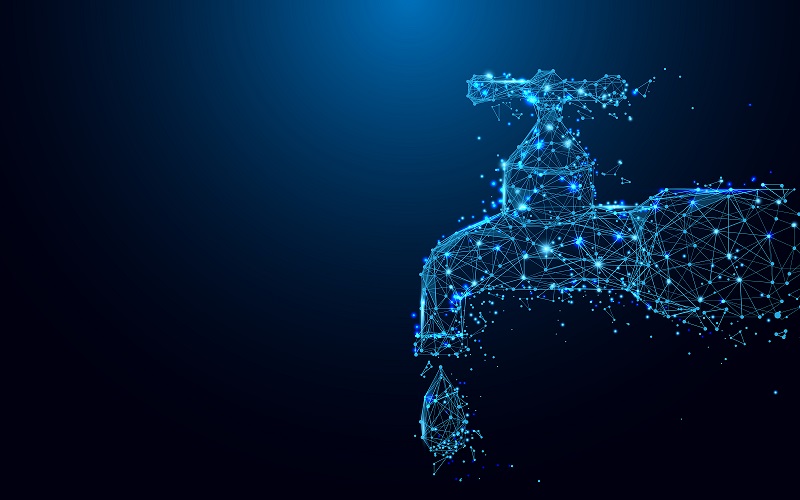
Water is the New Oil, Data is the New Gold
Oil and gold have long been considered two valuable commodities for human society, oil as the world’s primary energy source, and gold as an economic asset, bringing the holder wealth and power.
However, as the world increasingly adopts digital technologies, water and data are emerging as equally important commodities, with each having the ability to modernise various industries, and in particular those still grappling with aging or outdated infrastructure.
Despite being so precious, water is arguably one of the most poorly managed resources in the world, in part, due to older infrastructure that exists within the water industry.
Remotely located, manually operated pumps and equipment, combined with traditional methods of reactive maintenance has allowed the industry to stagnate, leaving it vulnerable to emerging issues such as adverse weather events and climate change.
It’s where data is emerging as an economic asset, and much like gold, can bring the holder wealth and power.
By employing monitoring-technology equipment, the water industry can use data like never before, collecting invaluable information about the operation and effectiveness of systems and infrastructure, regardless of location, and without the requirement of time sensitive and time-consuming manual readings.
Data collected goes beyond basic run time and capacity monitoring, but rather detailed and minute information is put together to provide a real-time, accurate map of how effectively equipment is operating, whether changes are required to maintenance and repair schedules, and how the system works as a whole.
It allows for condition-based maintenance to occur – freeing up time and money that might have otherwise been spent on reactive and scheduled maintenance – while also potentially reducing the risk of unexpected downtime and outages.
And, in the same way that wealth created by gold can build over time, the wealth of information generated by data can also build over time, creating a collective insight into an industry and offering valuable knowledge into emerging trends, patterns, and periods of high demand.
Such information can then be used to make better informed business decisions, while also providing tangible evidence of the effectiveness of such decisions.
This wealth of data can also be used to create sector-wide efficiencies – assisting to modernise and digitally transform the water industry as a whole, and providing greater opportunity for large-scale cost, time and personnel efficiencies.
A key part of modernising the entire industry however, is employing technology that has the ability to evolve and adapt, applying the learned knowledge in ever developing ways, to ensure the data is always providing added value.
In the same way that state of the art equipment and devices can become outdated over time, digital technologies must also keep pace with change, with improvements and updates developed and routinely added.
It’s this kind of digital transformation that will truly allow the water industry to enter the digital era and flourish, with water and data working together to become rich commodities in every sense of the word.